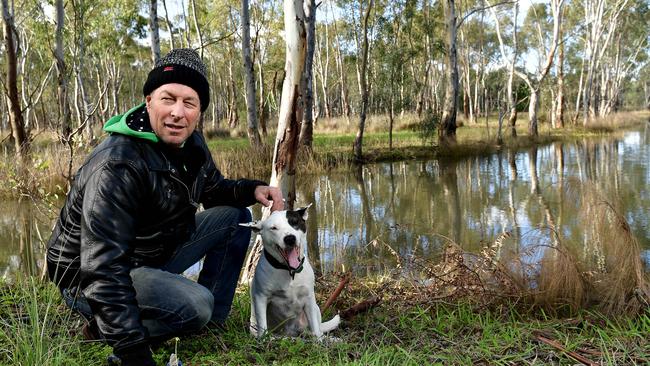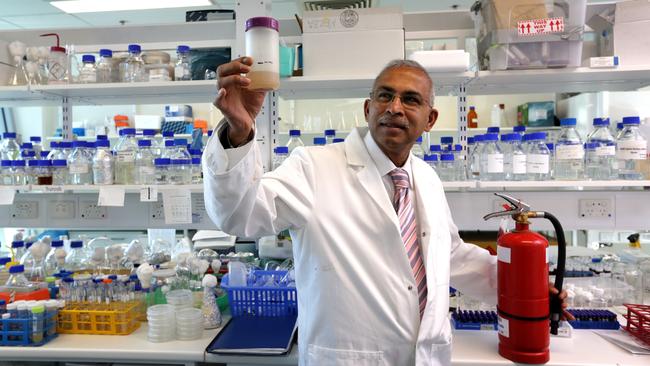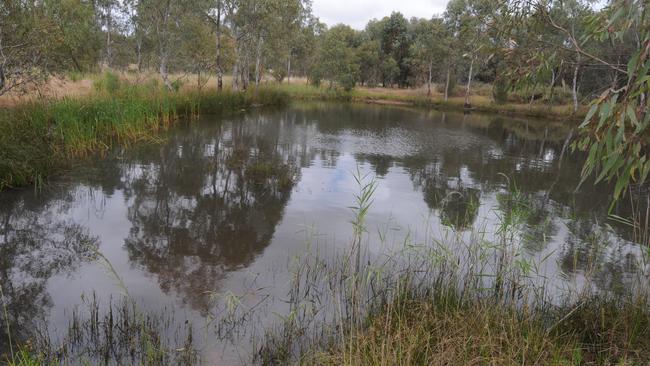Tests confirm cancer-causing toxins have infiltrated recycled water systems used to irrigate market gardens, businesses, parks and a primary school in Adelaide’s north
CANCER-causing toxins have infiltrated two recycled water systems used to irrigate market gardens, businesses, parks and a primary school in Adelaide’s north, tests have confirmed.

SA News
Don't miss out on the headlines from SA News. Followed categories will be added to My News.
- Experts say toxins may have already leached into wetland system
- Defence analysing watercourse samples near RAAF Edinburgh base
CANCER-causing toxins have infiltrated two recycled water systems used to irrigate market gardens, businesses, parks and a primary school in Adelaide’s north, tests have confirmed.
The Environment Protection Authority and Salisbury Council are now appealing to the Defence Department to fast-track its inquiry into potential contamination at its Edinburgh RAAF base, which is suspected of being the source of the pollution.
They also want the department to widen its investigation’s scope to include surrounding houses and businesses.
As revealed in The Advertiser this month, the department is analysing samples from bores and open watercourses at the base to check if the harmful toxins perfluorooctane sulfonate (PFOS) and perfluorooctanoic acid (PFOA) are present.
These chemicals, which were present in firefighting foam used at the base until 2004, do not break down in the environment and have been linked to cancer in people and animals.
The results are expected to be known by the end of July.
However, Salisbury Council’s own tests, initiated this month in response to the RAAF base investigation, have shown a “positive reading” for PFOS and PFOA at its Kaurna wetlands and Edinburgh Parks South water system.
Both are located near the defence base and supply water to 66 businesses and organisations, including produce growers, and irrigate 34 council sites, such as parks and ovals.
The council is now retesting to confirm the accuracy of the results.
“As you are aware we have already shut down these two (water) systems …. and will now reassess our response to determine if any further actions are required,” stated a secret internal council briefing, seen by The Advertiser.
Properties connected to the recycled water systems will receive water from other aquifers.
The council took new samples on Thursday.
“We will endeavour to push for the results as soon as possible but have been advised that there’s currently a high demand for these tests,” the briefing stated.
It is understood there are only two laboratories in Australia that can test for the PFOS and PFOA.
Earlier this month Professor Ravi Naidu, from independent contamination research and assessment organisation CRC Care, said if PFOS and PFOA were found in the wetlands it would kill microorganisms and algae, as well as earthworms.

He said this would stop the wetlands from cleansing the water properly, poisoning fish and depleting their food supply.
Professor Naidu also said if contaminated water was used on parks and ovals, the toxins would be transferred to users of these facilities.
The council and the EPA met yesterday to discuss the next steps.
They have asked the Defence Department to broaden its investigation to test soil, surface water and groundwater on and off the base, review the historical use of the toxic firefighting foam to identify potential contamination, conduct a health risk assessment of the situation and engage with the community and stakeholders about the inquiry.

A council spokesman said the council had taken a “proactive approach” in relation to the matter.
He said the council would “work with the Defence Department, Environment Protection Authority and SA Health on what further action may follow” once the second round of test results were received.
A council briefing from earlier this month stated if contamination was found in the water systems, the council would continue to supply recycled water from other sites.
“Some customers may elect to revert to mains water. Supply contracts allow for this provision, at the customer’s expense,” it stated. It stated that one commercial customer had elected to do this as a “precautionary measure”.
Parafield Gardens resident Chris Jones, who regularly visits the Kaurna wetlands with his dog Jay, said he was worried about the implications of the toxins.
“It did concern me because my dog was drinking out of the river system there,” he said.
The Defence Department did not respond to The Advertiser’s request for comment by its print deadline.
Environment Minister Ian Hunter referred request for comment to the EPA.
A spokesman for the EPA said the organisation was being kept informed about the council tests.
“As a regulator the EPA has a responsibility to ensure that its licensees meet their obligations to protect the environment, and help encourage others to achieve the best environmental outcomes,” he said.
Opposition defence spokesman Stephen Conroy announced this month that if Labor wins next week’s Federal Election it would set up a taskforce to respond to PFOS and PFOA contamination issues across Australia.
It would also fund 10,000 voluntary blood tests at affected sites.
The Turnbull Government has also said it would fund voluntary blood tests and counselling services if re-elected.
The Defence Department has created a website — defence.gov.au/id/PFOSPFOA/default.asp — to provide information about its investigations at the Edinburgh base and other sites interstate.


